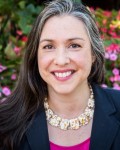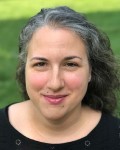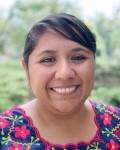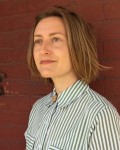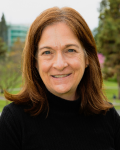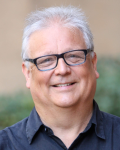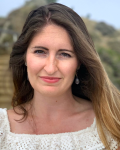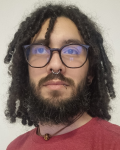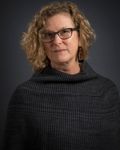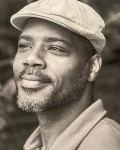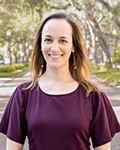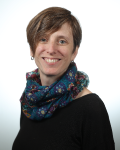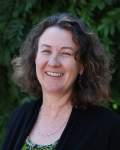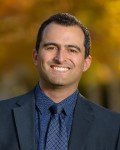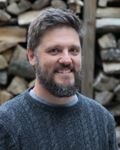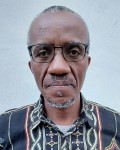ACLS Digital Justice Development Grants
Archiving Out of the Box: Supporting Community Ownership of Shared Narratives through a Digital Archiving and Storytelling Kit
The Archiving Out of the Box project supports communities who are excluded from the historical record. The project team, including community partners from Indiana and Ohio, will collaborate on a non-custodial archiving-workflow toolkit with three new affordances. First, it requires minimal to no institutional involvement. Second, it emphasizes minimal computing and minimal cost. Finally, it is a start-to-finish approach that includes relationship building, community collection, post-production, and post-archive impact guides. In addition to the publication of two community digital archives using the toolkit, the team will distribute the Archiving Out of the Box toolkit for open peer-review and ultimately, for wider public use.
Principal Project Team:
Assessing Surveillance Efficacy and Fostering Visions for Community Safety for Social Justice in Detroit, MI
The Safety Ain’t Surveillance Coalition is a city-wide organization seeking to build non-punitive ways to build safety across our city, without continued reliance on surveillance technologies that strip Detroiters of their privacy while criminalizing Black neighborhoods and people. The research work will involve collaborating with community members to address the current divide between digital justice, racial injustice, and public safety. We are carrying out this work by building critical perspectives that inform the protection of rights to privacy in the nation's largest majority-Black city through collaborative analysis, the development of a layered interactive digital map, and corresponding oral histories of Detroiters addressing digital justice, racial injustice, and public safety.
Principal Project Team:
Building the Environmental Injustice Global Record, Connecting Researchers, Teachers and Environmental Justice Advocates
The proposed work will strengthen the workflows, technical infrastructure and community of practice building the Environmental Injustice Global Record, an expansive digital archive and collaboration space designed to address environmental injustice in settings around the world. Using open source digital infrastructure, collaborating researchers build digital collections, collaboratively analyze data, and publish in diverse, multimodal forms. The EiJ Global Record links academic researchers (including students), teachers (in K-12, university and community settings), and environmental justice advocates. The work is motivated by commitments to community-engaged research, (decolonized) open science, open source software, and innovative forms of scholarly communication.
Principal Project Team:
Freedom & Captivity Archive Project: Archiving Carceral Experience
Freedom & Captivity will build a digital archive of carceral experience - the hidden stories of Maine’s incarcerated community members - and perform that archive at venues across the state. The curated archive will be housed at the Maine Memory Network, Maine Historical Society’s digital history platform, and all the material collected for the project will be archived in Colby College Library’s Digital Collections. This will be the first archival space in Maine to hold stories about incarceration, curated and sensitively contextualized by those most impacted by carcerality. By offering a platform for the voices of those previously silenced by carcerality, our project aims to shift the narrative around justice, accountability, and the need for incarceration in the wake of harm.
Principal Project Team:
Reanimating African American Oral Histories of the Gulf South: Enhancing Public Engagement
Reanimating African American Oral Histories of the Gulf South: Enhancing Public Engagement will further develop an open-access, easy-to-use, web-based interface that provides users with resources to enhance student and community engagement with the oral histories and learning modules centered on spoken African American Language. We will expand the project’s impact by going beyond the normal scope of university public engagement and being guided by community feedback and expressed needs. We will respond directly to the needs of a specific marginalized and neglected community by continuing to engage with the Black community within Putnam County, Florida. We will focus our efforts on the oral history of students who attended the first Black schools in Florida before integration.
Principal Project Team:
The Nevada Racist Covenants Research and Redaction Project
The project documents housing discrimination in Nevada and how communities of color have nevertheless persisted. It will create a website and smartphone application using mapping, filmed oral histories, archival research, and historical narration. Pursuant to state law, it researches racist covenants, notifies homeowners, and uses local courts and county recorders to redact racist covenants. This project will answer: how was America’s racist housing system created from the “bottom-up,” that is, through the coordinated actions of thousands of government decision-makers and real estate professionals? What present-day legacies remain? Technological advances such as digitization of deeds make it now possible to document and interpret racist covenants for scholarly and general audiences.
Principal Project Team:
The Personal Writes the Political: Securely Rendering Black Lives Legible Through the Application of Advanced Machine Learning (ML) to Anti-Apartheid Solidarity Letters
The Personal Writes the Political (PWP) is a digital humanities project that applies advanced machine learning (ML) models to anti-apartheid solidarity letters predominantly authored by Black South African women. We created a software pipeline called Careful Recall (Caracal) which automates the transcription of handwritten materials into machine readable text and conducts named entity recognition to distinguish between private identifying information from relevant research data in highly sensitive handwritten archives. We will use Caracal to extract modest datasets from selections of thematically united letters we call focal clusters. In addition we will conduct skills transfer to this collections' home archive, the Mayibuye Centre Archive.


